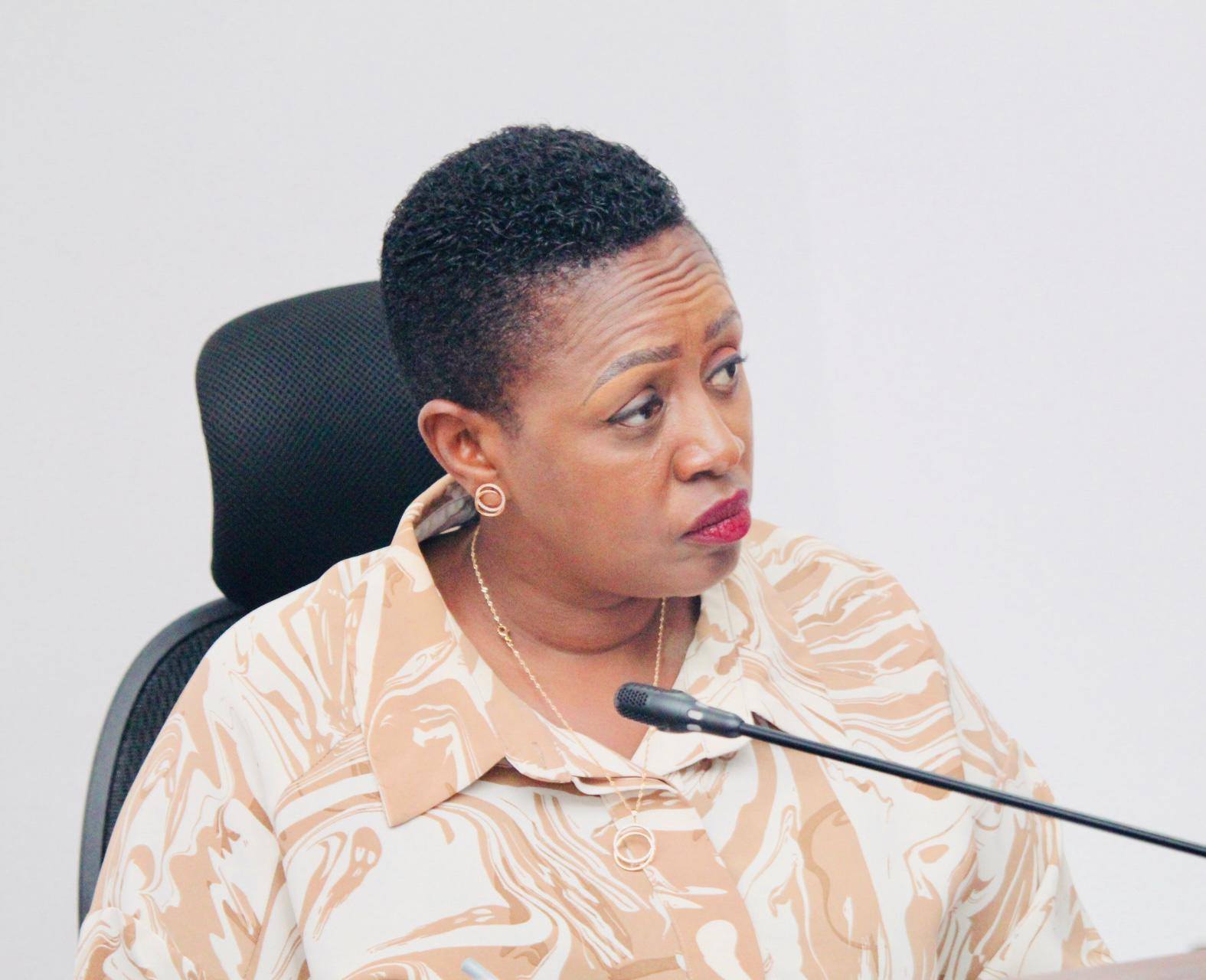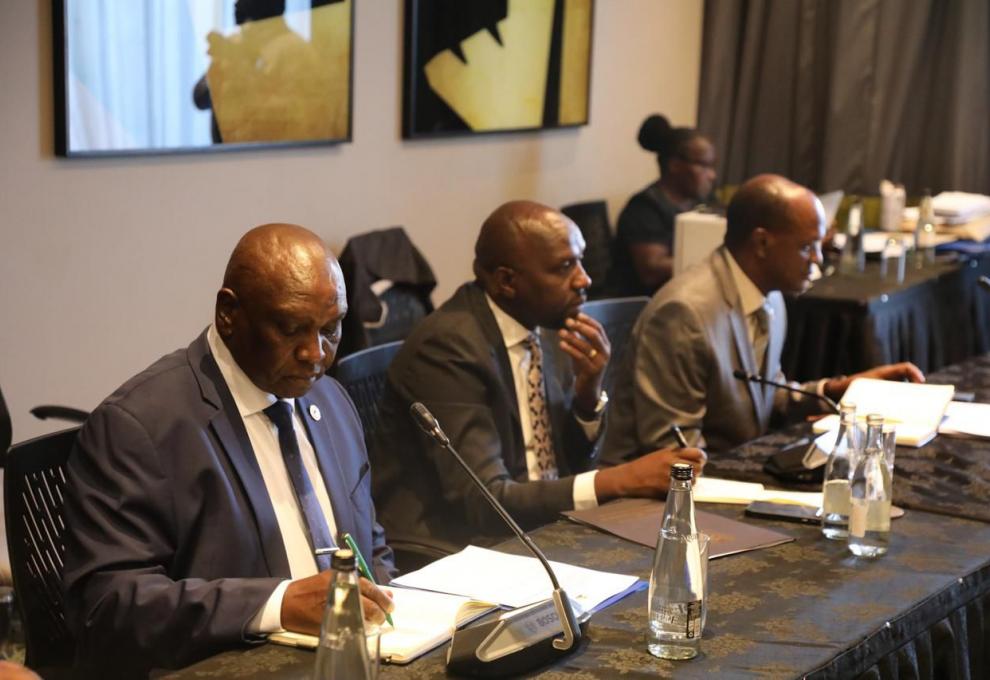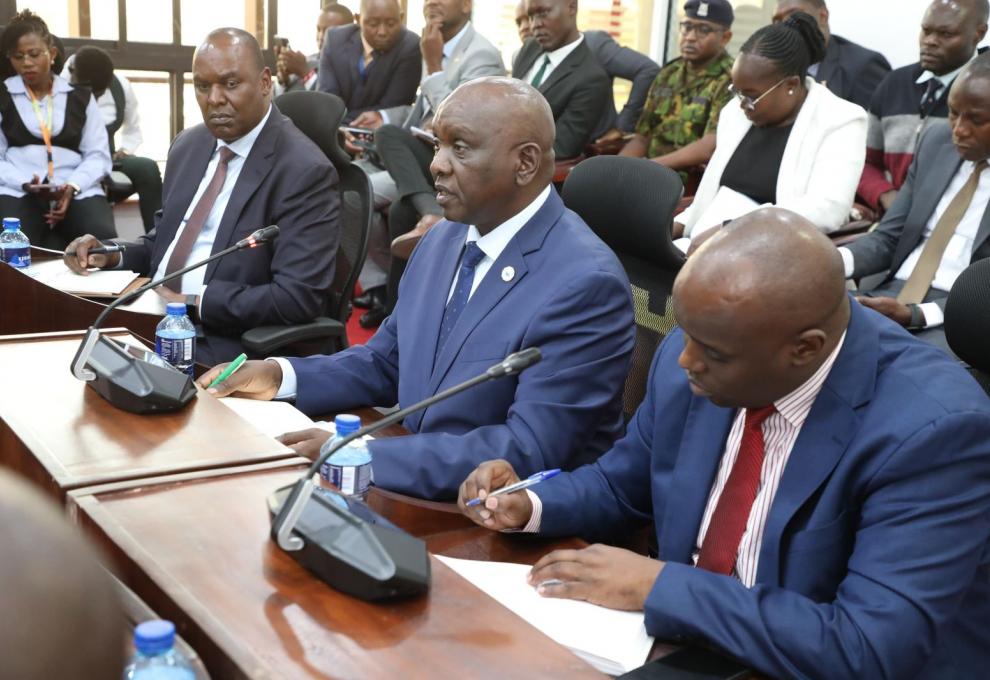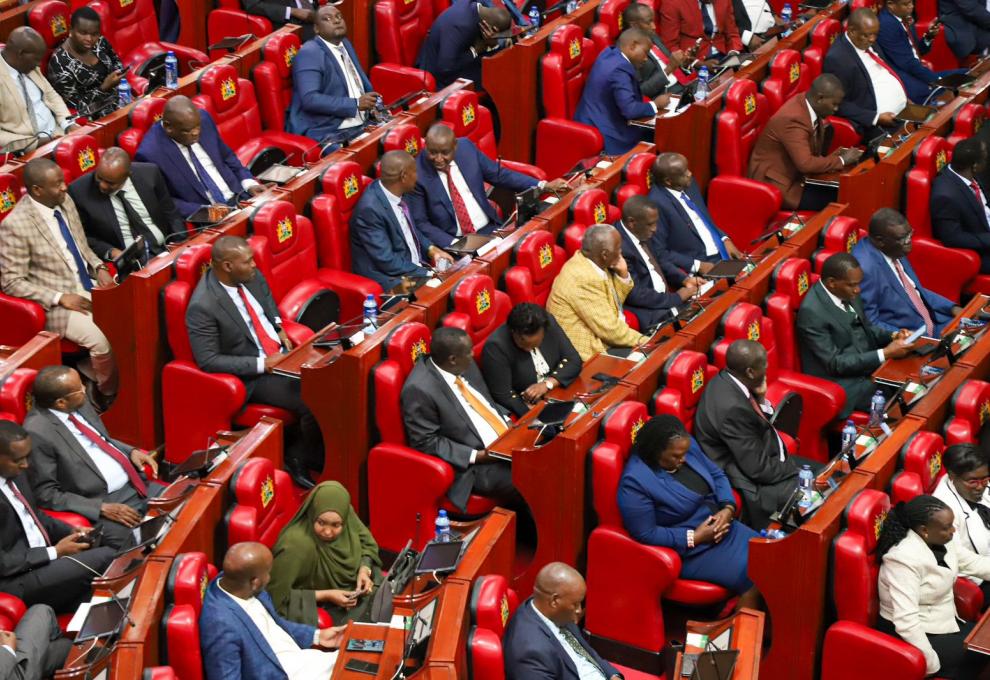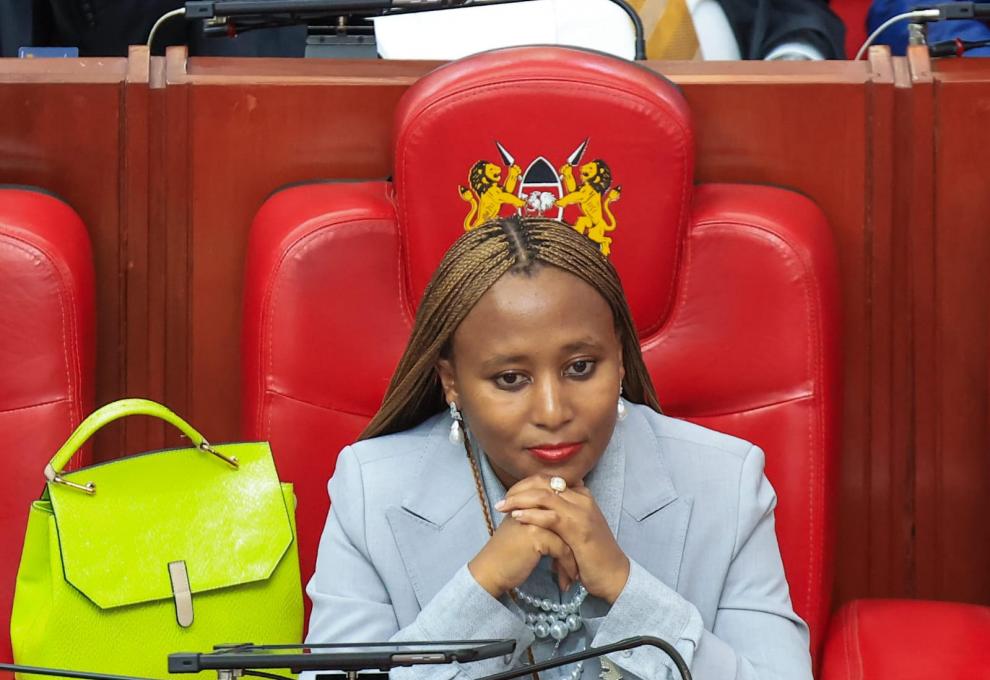𝐌𝐏𝐒 𝐁𝐀𝐂𝐊 𝐌𝐎𝐓𝐈𝐎𝐍 𝐓𝐎 𝐒𝐓𝐑𝐄𝐍𝐆𝐓𝐇𝐄𝐍 𝐔𝐍𝐈𝐕𝐄𝐑𝐒𝐀𝐋 𝐇𝐄𝐀𝐋𝐓𝐇 𝐂𝐎𝐕𝐄𝐑𝐀𝐆𝐄 𝐀𝐍𝐃 𝐏𝐑𝐎𝐌𝐎𝐓𝐄 𝐔𝐒𝐄 𝐎𝐅 𝐏𝐔𝐁𝐋𝐈𝐂 𝐇𝐎𝐒𝐏𝐈𝐓𝐀𝐋𝐒 𝐁𝐘 𝐏𝐔𝐁𝐋𝐈𝐂 𝐎𝐅𝐅𝐈𝐂𝐄𝐑𝐒
Lawmakers have supported a motion that calls on Government to fast-track the implementation of Universal Health Coverage (UHC) and make it mandatory for all public officers to seek treatment in public health facilities
The motion sponsored by Hon. Sabina Chege directs the Government through the Ministry of Health implements the Kenya Universal Healthcare Coverage Policy 2020-2030 and introduce a policy on mandatory use of public health care facilities by all civil servants, public officers and State officers in the country.
"The Government committed to accelerating attainment of Universal Health Coverage (UHC) to ensure all Kenyans have access and receive essential quality health services; cognizant of the fact that
in 2020, the Ministry of Health adopted the Kenya Universal Healthcare Coverage Policy 2020-2030 with the theme: Accelerating Attainment of Universal Health Coverage which is currently being implemented through the introduction of Social Health Insurance Fund," stated Hon. Sabina Chege.
Hon. Chege reminded the House the urgent need to improve the quality of care in public hospitals, noting that many facilities remain underfunded, in turn undermining service delivery.
According to the nominated legislator, directing public officers to use public hospitals would not only strengthen accountability but also inject much-needed funding into these institutions through the medical insurance cover provided by government agencies.
"Civil servants, public officers and State officers are accorded a comprehensive medical cover by the respective government agencies; appreciating that the use of the comprehensive medical cover by public officers and State officers in public
hospitals would guarantee sufficient funding for public hospitals", added Hon. Chege
Dagoretti North MP, Hon. Beatrice Elachi supported the motion, calling for a cultural shift among leaders and citizens towards embracing public institutions. She pointed out that the same doctors working in public facilities like Kenyatta National Hospital also serve in private hospitals, suggesting the issue lies more with perception than competence.
Hon. Elachi also urged for regulation of exorbitant fees charged by some medical institutions, saying the high cost of healthcare remains a major barrier for many Kenyans.
Chairperson, Committee on Health, Seme MP, Hon. (Dr.) James Nyikal, said Parliament must lead by example. “We need to look at the ethos of this country. If we really meant it, we, as Members of Parliament, should commit to using public services—flawed as they may be,” he stated.
Hon. Nyikal further stressed the need to restore confidence in public institutions, making them the gold standard that private providers should emulate.
Elgeyo Marakwet County MP, Hon. Caroline Ng’elechei while noting that healthcare was a devolved function, called on Governors to prioritise equipping hospitals and maintaining cleanliness. She said enhancing conditions in public facilities is key to attracting both public trust and usage.
On his part, Kwanza MP, Hon. Ferdinand Wanyonyi argued that part of the solution lies in improving pay and working conditions for healthcare workers in public institutions. This, he said, would motivate staff to uphold higher standards, rebuild trust, and reduce brain drain to the private sector.
Kiharu MP, Hon. Ndindi Nyoro on his part emphasised the central role of healthcare in economic development.
“While education adds value to the workforce, healthcare services the same labour force making it integral in driving economic growth,” he noted
Hon. Nyoro cited the United Kingdom’s National Health Service (NHS), where even top government officials including the Prime Minister are treated in public hospitals, an approach that he states boosts public confidence in the public healthcare.
However, Suba South MP Hon. Caroli Omondi argued that healthcare should not be devolved. In his view, the success of the UHC is depends on centralisation of the healthcare services.
“For UHC to function as intended, it must operate as a unified insurance scheme. That requires pooling resources and expertise centrally. Devolution, in this case, undermines efficiency,” Hon. Omondi argued.
He called for a restructuring of the health sector within the framework of devolution, without undermining the ability to mobilize adequate resources. He further proposed establishing a common employer for all health workers to ensure consistent quality and service standards across the country.
Members of the National Assembly are expected to continue debate on the motion next week.



